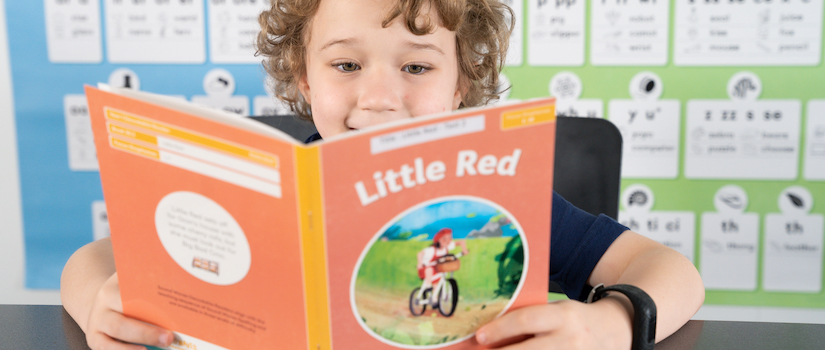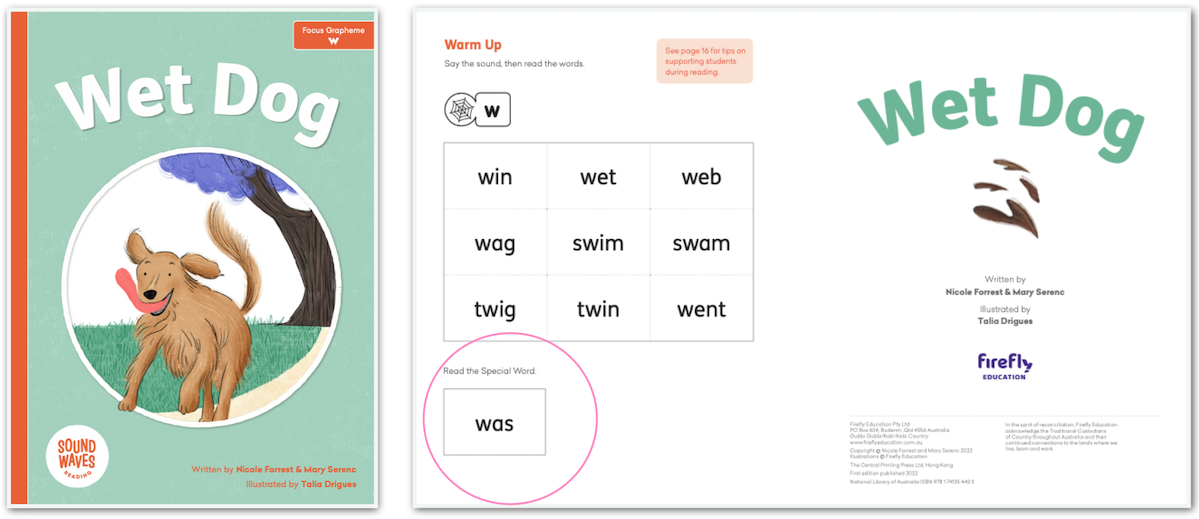Articles & Videos
High-frequency words, special words, sight words – what's the difference?
Categories
Subscribe to our newsletters
Receive teaching resources and tips, exclusive special offers, useful product information and more!
High-frequency words, special words, sight words – what's the difference?
Sound Waves Literacy 23/4/25

High-frequency words, as the name suggests, are the words most often used in English and can contain common or unusual phoneme–grapheme relationships.
Special Words is a term specifically used in Sound Waves Foundation (and Year 1) for high-frequency words that either contain unusual phoneme–grapheme relationships (e.g. was, said), or words containing phoneme–grapheme relationships not yet taught in the sequence (e.g. look, for).
There are many high-frequency words that contain very common phoneme–grapheme relationships (e.g. and, in, on). These are not introduced as Special Words in Sound Waves Literacy. Instead, they are taught in lessons on phoneme–grapheme relationships. For example, when students learn the grapheme n for /n/ in Foundation, they learn to read and spell the high-frequency words and, in and man.
Sound Waves Special Words are words such as:
they
![]()
![]()
friend
![]()
![]()
![]()
![]()
![]()
our
![]()
![]()
should
![]()
![]()
![]()
These contain irregular sound–spelling relationships so they require extra explanation. Each Special Word is taught by explaining the phoneme–grapheme relationships in the word and identifying the tricky part/s of the word. For example, the graphemes ey, ie, r and oul in the Special Words above are all unusual spelling choices for those phonemes.
It’s important to remember that most Special Words are not entirely irregular. For example, the Special Word said, which contains ai for /e/, is still two-thirds regular. Students learn s for /s/ and d for /d/ early in the Foundation sequence, so only one part of the word said is irregular (or special).
Are Special Words the same as sight words?
Special Words differ from traditional sight words because Special Words are not taught as whole words or pictures that need to be memorised. Practices such as word drills with flashcards or rote learning are not encouraged and are proven to be ineffective. Instead students are taught to break Special Words into phoneme–grapheme relationships for reading and spelling.
Some sight word lists are based on words most frequently used by students in their early schooling. In Sound Waves Literacy, frequency was considered when selecting Focus Words and Special Words.
What resources support Special Word instruction?
In Foundation, each Special Word is taught in a lesson, which involves the teacher identifying the graphemes in the word and explaining the tricky parts of the word. Teachers use the online lesson slideshow to explicitly model reading and spelling the Special Word. Students complete the corresponding Student Book activities where they get the opportunity to practise writing the word in a sentence. Students also get to practise reading the Special Word in the Decodable Readers.
Special Words also appear in the Year 1 Decodable Readers.
When a Special Word is featured in a Sound Waves Decodable Reader, you’ll find it listed on the inside front cover.

Why are some words only momentarily special?
Some Special Words are only special for a short time until students have learned the necessary phoneme–grapheme relationships. For example, the Special Word is contains s for /z/ but this word is frequently used in reading and spelling, so it is taught as a Special Word in Foundation in Term 2, Week 2. Later, students learn z for /z/ in Term 3, Week 1 before learning that s can also represent /z/ three weeks later (Term 3, Week 4). Once students have learned that i can represent /i/ and s can represent /z/ (and commonly does in words such as is, has, his and was), they can decode the word is so it is no longer considered a Special Word.
Is teaching Special Words contradictory to a systematic synthetic phonics approach?
There’s no evidence that teaching Special Words alongside a systematic synthetic phonics approach negatively affects students’ reading or spelling. In fact, research confirms that teaching students unusual high-frequency words doesn’t impact their alphabetic decoding ability. 1
For more information about Special Words, refer to the Sound Waves Literacy Scope and Sequence. It outlines the Special Words in Foundation lessons.
References
- Castles, A., Rastle, K., and Nation, K., 2018, ‘Ending the Reading Wars: Reading acquisition from novice to expert’, Psychological Science in the Public Interest, 19(1), 5–51.